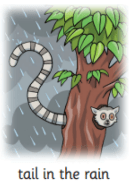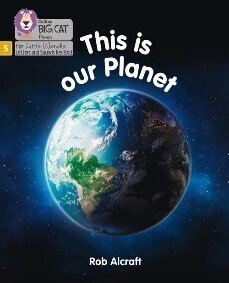English
Phonics and early reading
Reading is vital for pupils to become successful in all areas of the curriculum and at Bedale Church of England Primary school we believe that every child should be a fluent reader by the end of year 2. We follow the Little Wandle Letters and Sound revised programme to ensure that phonics is taught systematically throughout EYFS and year 1 and continues until pupils are confident, fluent readers.
Supporting your child with early reading
Although your child will be taught to read at school, you can have a huge impact on their reading journey by continuing their practice at home.
There are two types of reading book that your child may bring home:
A reading practice book. This will be at the correct phonic stage for your child. They should be able to read this fluently and independently.
A sharing book. Your child will not be able to read this on their own. This book is for you both to read and enjoy together.
Reading practice book
This book has been carefully matched to your child’s current reading level. If your child is reading it with little help, please don’t worry that it’s too easy – your child needs to develop fluency and confidence in reading.
Listen to them read the book. Remember to give them lots of praise – celebratetheir success! If they can’t read a word, read it to them. After they have finished, talk about the book together.
Sharing book
In order to encourage your child to become a lifelong reader, it is important that they learn to read for pleasure. The sharing book is a book they have chosen for you to enjoy together.
Please remember that you shouldn’t expect your child to read this alone. Read it to or with them. Discuss the pictures, enjoy the story, predict what might happen next, use different voices for the characters, explore the facts in a non-fiction book. The main thing is that you have fun!
For more information on how phonics is taught in school and how you can support your child at home please follow the link below:
For parents - Letters and Sounds (littlewandlelettersandsounds.org.uk)
Reading
As a school we promote a love of reading each and every day.
We develop an enjoyment of stories through high quality class texts and the children enjoy sharing a wide variety of books from a range of genres. Each day the children are involved in reading activities firstly as part of their Little Wandle phonics lessons and reading practice sessions and then in whole class reading lessons as they move through school. This allows them to quickly develop early reading skills and then move onto developing a deeper understanding of a text. All children take home a book closely matched to their reading ability. Additionally, children are encouraged to read widely from a range of high-quality texts and they try to read as many of the 50 recommended reads for each year group as they can. To find the lists of books for each year group, please follow the link here or
Throughout the year the children use the school library weekly and take part in numerous reading events such as Author visits, local bookshop visits, World Book Day and North Yorkshire Libraries Reading Challenges to name but a few.
To find out about our school library, click here.




Writing
Children in school write regularly for a range of purposes. We teach the children to adapt their writing to different styles and genres and use writing across the wider curriculum. Children are taught the grammatical skills needed to become accurate writers and are encouraged to consider spelling and punctuation in all of their work. From year 2, we use No Nonsense Spelling to teach spelling patterns and strategies, building on the phonic foundations taught in reception and year one.
Most of our writing work is based on high quality texts, real-life experiences or cross-curricular learning.
Children are proud to display their writing around school and enjoy sharing with different audiences. Have a look at some of our wonderful work.
Spoken language
Spoken language is incorporated into all lessons and children are taught how to become clear, confident speakers as well as great listeners. The children have regular opportunities to speak and perform in pairs, small groups and whole class situations. We have many drama opportunities throughout school and an annual whole-school poetry competition where the children can use their spoken language skills.














